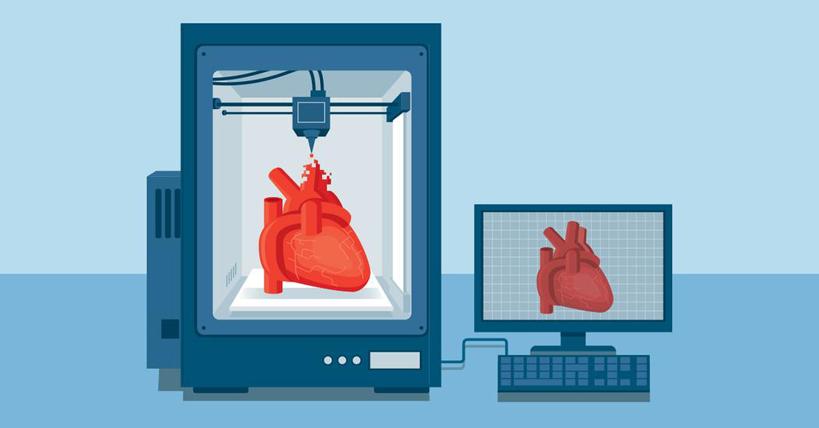New year, new medical advancements
2016 medical progress leads to more breakthroughs for 2017
In 2012, an article from MedCityNews released predictions for the future of medicine. Before delving into new predictions and expectations, take a look at what has been done already and how it will be altering the standards for 2017.
Firstly, it was predicted that organ printing would be developed by 2016, which has since then been proven correct. On March 15, 2015, even earlier than expected, Russian scientists unveiled the first bioprinted organ, using stem cells as “ink” for the building of a thyroid gland.
Stem cell treatments were rare in 2012, with scientists predicting for them to come around in 2028. Since then, universities like Harvard, the University of North Carolina and Massachusetts Institute of Technology (MIT) have made major breakthroughs involving using stem cell treatments for people with Type 1 diabetes.
Gene therapy was predicted to be available in 2030, according to MedCityNews. However, the new process called CRISPR (Clustered Regularly Interspaced Short Palindromic Repeats), which allows for genome editing, has been released already in 2016 and is predicted to be making a tremendous impact on the success of biomedical researchers and geneticists worldwide.
In 2016, scientists, researchers and physicians discovered even more than what was expected in various fields like genomics, diabetes, bioprinting and many more. As we go into the new year, new predictions are arising on what new medical advancements we will be seeing in 2017. A few of the major rising fields include anti-aging medicine, genomics and artificial intelligence.
Companies like Google, Johnson & Johnson, Apple, Medtronic, Mayo Clinic and Amazon have started supporting the American Academy of Anti-Aging Medicine (A4M). This academy has reached over 26,000 medical professors in 120 countries that have made major breakthroughs throughout 2016. They plan to expand their research throughout 2017 with all of the support they have gained. Anti-aging medicine could potentially detect, prevent, treat or reverse age-related dysfunctions.
Genetics has been expanding more than ever before. As mentioned before, new techniques such as CRISPR allow for gene editing. In addition, pharmacogenomics, which is the study of how genes affect a person’s response to drugs, has been expanding for over the past ten years.
“We will be one year closer to health care providers making all medication decisions based on how an individual will respond based on genetic testing,” Dr. Susan Wesmiller, an assistant professor at the University of Pittsburgh who specializes in genomics and nursing research, stated.
Genetic testing advances will lead to new discoveries about many different diseases’ origins and behavior against medications, therefore further allowing researchers the opportunity to experiment more with personalized medications. One of the fields that will be impacted by genetic testing is diabetic research.
“I believe genetic research will help identify those at risk and could tailor and individualize their treatment if and when a cure is found. It could also help tailor the management of people who already have diabetes,” Dr. Denise Charron-Prochownik, a professor at the University of Pittsburgh who specializes in research for care of Type 1 and Type 2 diabetics, stated.
Last but not least, artificial intelligence will be making appearances in 2017. IBM Watson, an artificial intelligence program, is expected to be more commonly found in U.S. clinics in 2017. IBM Watson acts as a database for patients so that doctors don’t have to flip through pages upon pages to find every patient’s information. This device includes features that advance cancer care by identifying any mutations in the patient’s body that could potentially be treated.
As 2017 goes on, expect to see major advances in genetic research, diabetes research, artificial intelligence and anti-aging medicine. Ranging from inventions to research breakthroughs, these medical advancements will affect millions of people across the world.



